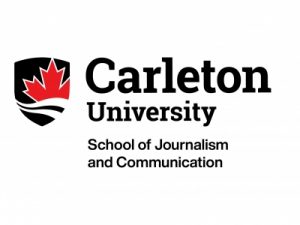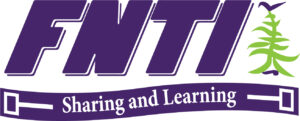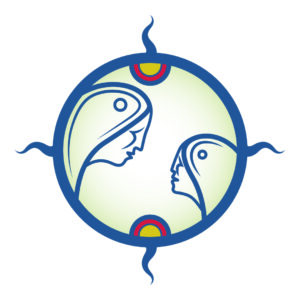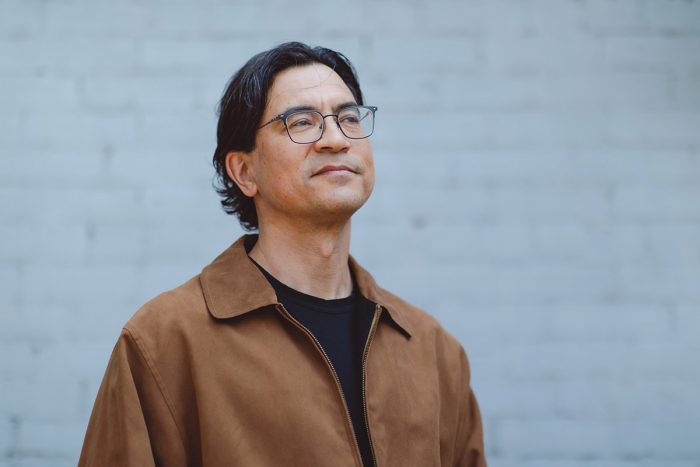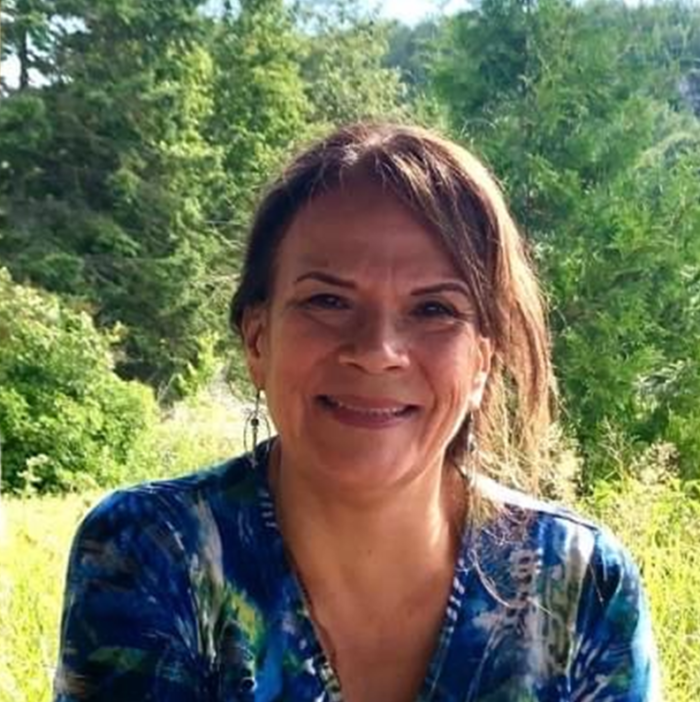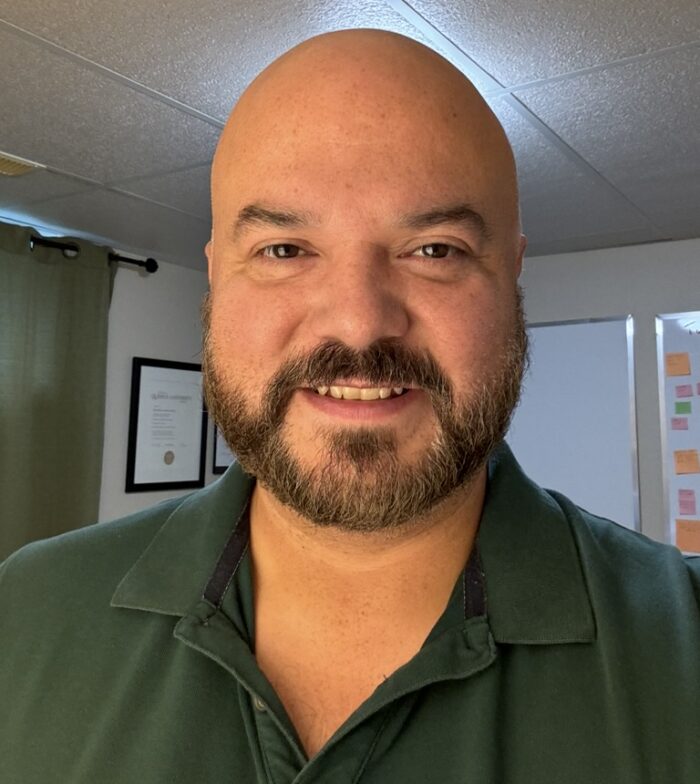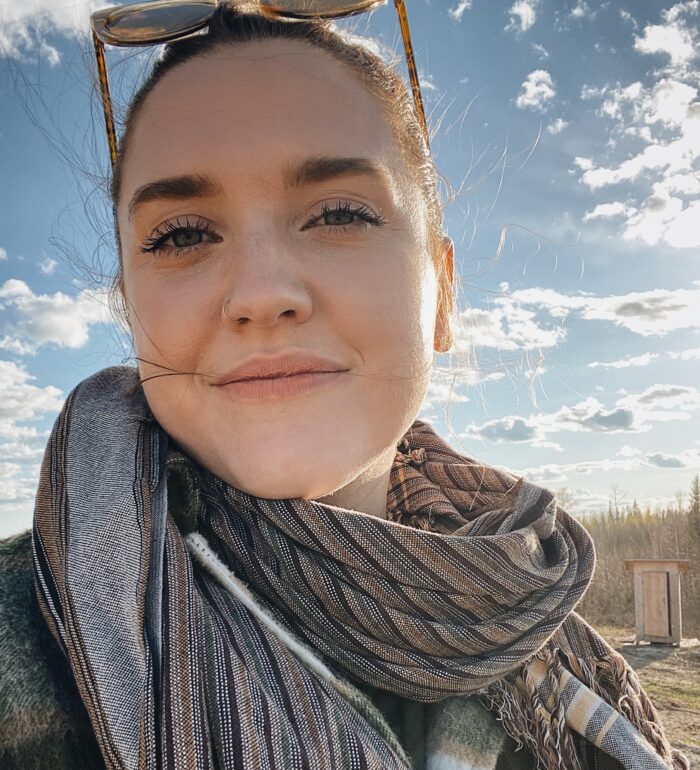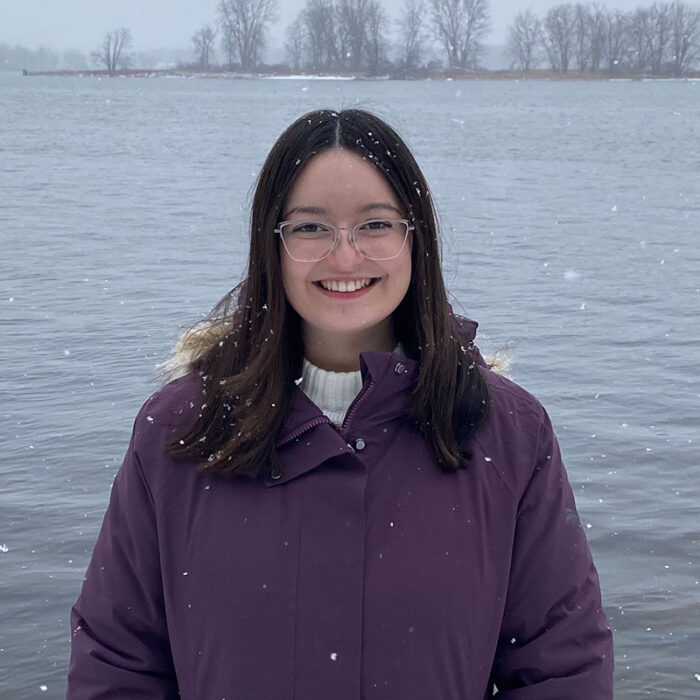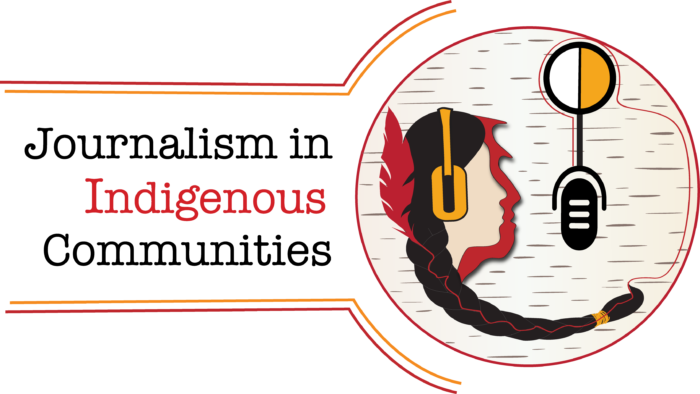Our Education Partners
Carleton University School of Journalism and Communication
Carleton University’s School of Journalism and Communication is the oldest and best-known Journalism program in the country.
Our internationally renowned Bachelor of Journalism (BJ) program has produced many of the top journalists in Canada and around the world. Many other graduates have used the journalism and storytelling skills we deliver to pursue rewarding careers outside of the news media.
Our students study journalism and storytelling in Ottawa, Canada’s major media hub. Many national media outlets, staffed by some of the country’s leading journalists, have bases in the city and often offer internships and career opportunities to our students.

Carleton University acknowledges the location of its campus on the unceded territory of the Algonquin Nation. The School of Journalism and Communication also recognizes the Truth and Reconciliation Commission’s Call to Action #86 compels journalists and journalism schools to better educate themselves on Indigenous Peoples and issues.
With these responsibilities in mind, we are taking exciting new steps toward including more Indigenous content in our curricula and creating innovative distance-learning journalism education like the CJIIC, tailored to the needs of Indigenous learners.
First Nations Technical Institute
FNTI is Ontario’s First Nations Technical Institute. Located on Tyendinaga Mohawk Territory near Belleville, Ontario, FNTI offers unique educational opportunities to enhance learners’ and communities’ capacity and strength.
In partnership with several Ontario colleges and universities, our Indigenous institute delivers culturally-rich post-secondary programs. Our community-driven approach coupled with our intense program delivery method allow our Indigenous learners to maintain connections to family and community while they study and prepare for their future careers.
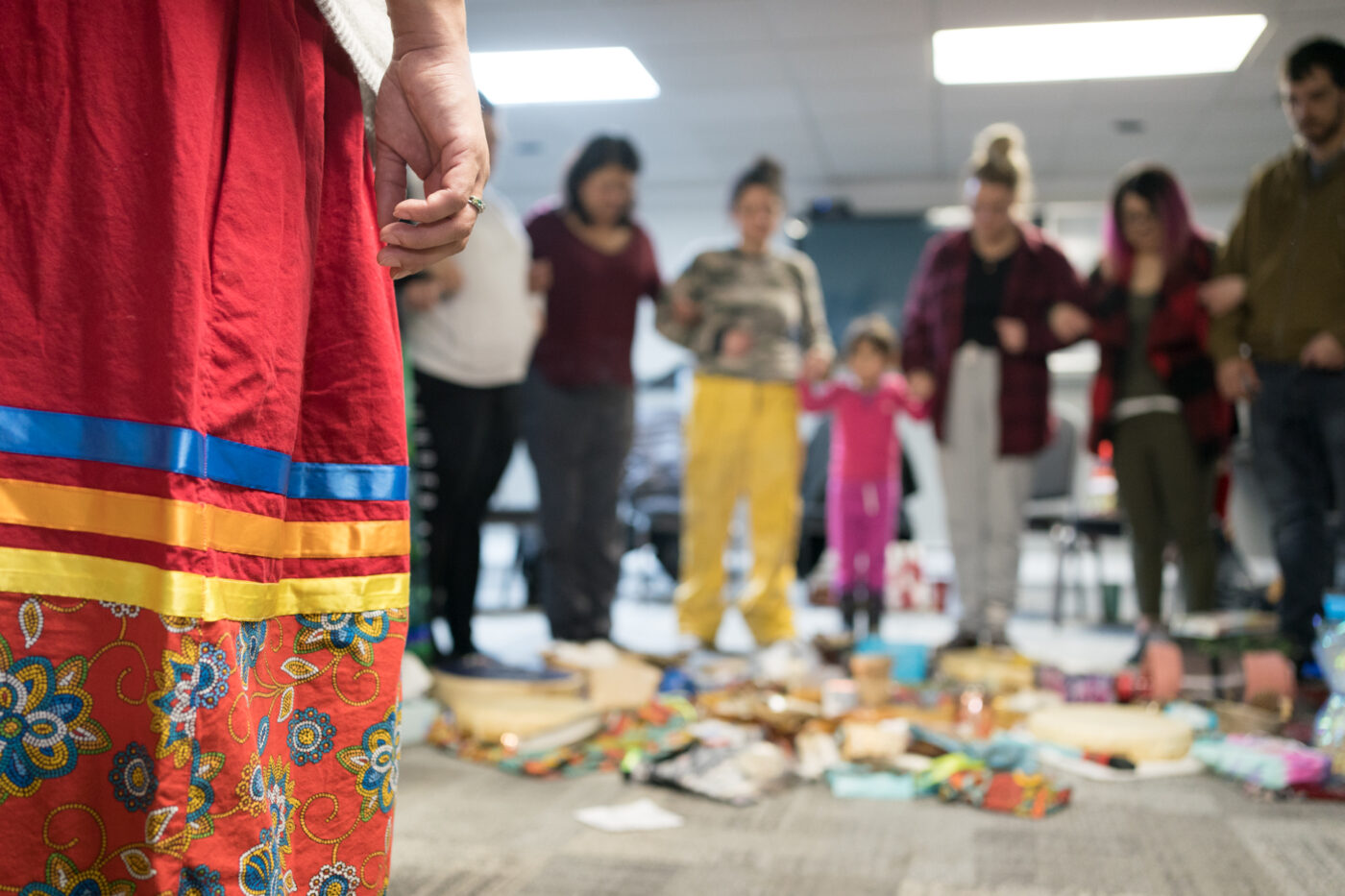
FNTI is a not-for-profit, registered charitable organization, accredited by the Indigenous Advanced Education and Skills Council (IAESC) and the World Indigenous Nations Higher Education Consortium (WINHEC).
FNTI has over 4,000 graduates with certificate, diploma and degree credentials issued in partnership with recognized Ontario colleges and universities.
Kenjgewin Teg
Kenjgewin Teg is an Indigenous-owned and controlled post-secondary institution at M’Chigeeng First Nation on Mnidoo Mnising, Manitoulin Island in northern Ontario. In Anishinaabemowin, Kenjgewin Teg means “place of knowledge.”
Kenjgewin Teg delivers post-secondary programs approved by the Ontario Ministry of Training, Colleges and Universities. We offer college and university accredited programs (certificates, apprenticeship, diplomas and degrees) in partnership with several colleges and universities. We also offer pre-employment training programs, employee training and professional development workshops.
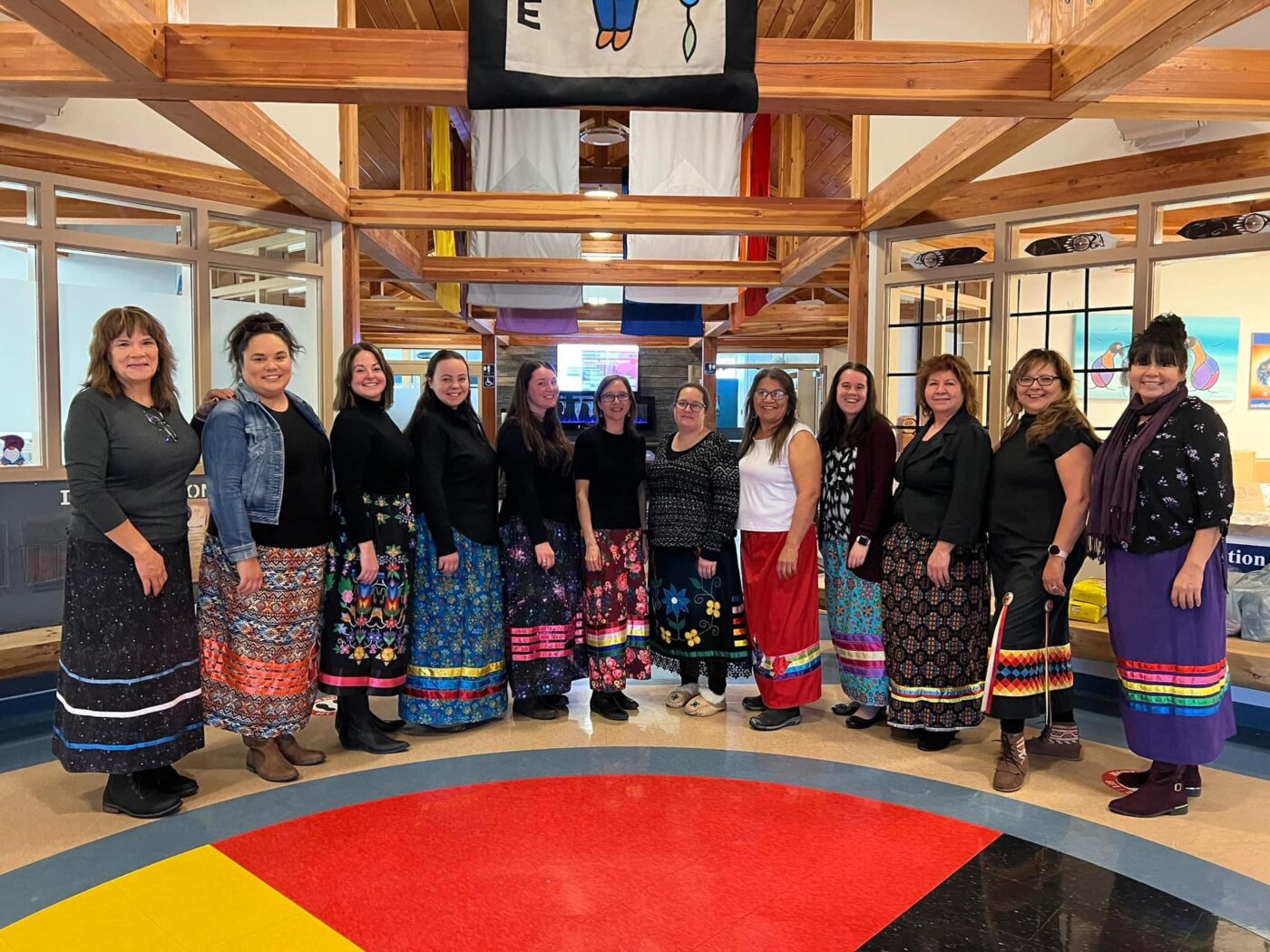
At Kenjgewin Teg, we believe that learning is a lifelong process. We exercise our Anishinabek educational autonomy by utilizing a community-driven and community-based approach focusing on continuous learning and inclusion of the teachings of Anishinaabe Aadziwin (the Anishinaabe way of life).
Anishinaabe Aadziwin is one of Kenjgewin Teg’s institutionally defined framework components – it is foundational in our Anishinabek worldview in teaching and learning.
Our Team
CJIIC Director – Duncan McCue
Award-winning broadcaster and educator Duncan McCue is a Professor of Indigenous Journalism and (Story)telling at Carleton University’s School of Journalism and Communication.
A longtime CBC radio host and TV news correspondent, he’s the author of Decolonizing Journalism: A Guide to Reporting in Indigenous Communities and The Shoe Boy, a memoir of his time spent on a trapline with a Cree family in northern Quebec. Duncan is a proud Anishinaabe from the Chippewas of Georgina Island First Nation in southern Ontario.
CJIIC Senior Academic Advisor (Kenjgewin Teg) – Debbie Debassige
Debbie Debassige is Dean of Post Secondary Education and Training with Kenjgewin Teg, and a proud Anishnabe Kwe from M’Chigeeng First Nation. She has devoted over 35 years to education from Kindergarten to Post-Secondary.
Debbie serves on several College and University education committees as a representative of Kenjgewin Teg and the United Chiefs & Councils of Mnidoo Mnisiing. When not working or enjoying the outdoors with her three grandsons, Debbie is devoted to building her language fluency in Anishinaabemin.
CJIIC Senior Academic Advisor (FNTI) – Adam Hopkins
Adam Hopkins, who is Lunapeew and Anishinaabe, grew up in Delaware Nation – Moraviantown and spent much of his childhood in Bkejwanong, his mother’s community. He graduated from Trent University and a joint FNTI/Queen’s University program and has over a decade of experience in student support and recruitment in higher education.
Now as Senior Vice-President, Academic at FNTI, he oversees multiple academic programs and is focused on achieving accreditation for standalone Bachelor degrees and enhancing FNTI’s profile in Indigenous education.
CJIIC Program Manager – Emily Everett
Emily Everett is a Canadian settler and Carleton University alum whose research focuses on community-based initiatives as forces of positive change. Formerly a program manager at both Universities Canada and True North Aid, Emily is excited to combine her experience in the higher education sector with her work supporting remote Indigenous communities across Canada on locally-led projects.
CJIIC Graduate Student Researcher – Samantha Stevens
Samantha D. Stevens is a British/Canadian settler and PhD candidate at Carleton University’s School of Indigenous and Canadian Studies and Institute of Political Economy.
A retired Royal Canadian Navy sailor and journalist, she is committed to relational accountability through her deep connection with Nipissing First Nation. Her SSHRC-funded research investigates the white saviour trope in Canadian newspaper coverage of Restoule v. Canada (2021), a landmark case under the Robinson Huron Treaty.
CJIIC Digital Content Creator – Marissa Meilleur
Marissa Meilleur is a second-year Bachelor of Journalism & Political Science student at Carleton University. She is Tlingit of Kwanlin Dün First Nation and is part of the Kukhittan (Raven) clan. Committed to learning about journalism to amplify Indigenous voices, Marissa has worked for CBC Yukon as an editorial assistant and reporter/editor and often contributes to The Charlatan, Carleton’s newspaper.
CJIIC Logo Designer – Dawn Iehstoseranon:nha
Dawn is Akwesasronon (Akwesasne), Kanienkéha’ka (Mohawk), Wakhskaré:wake (Bear Clan), Feather Keeper/Protector and artist practicing and sharing Bird medicines. She is the founder of the Indigenous Arts Collective of Canada and artist at Pass The Feather. Dawn is also a writer, graphic and web designer passionate about elevating Indigenous voices through websites, branding and marketing.
Instructors
A guiding philosophy of the CJIIC is that all courses will be designed with Indigenous pedagogical principles and delivered by experienced Indigenous journalists.
We look forward to introducing you to our team of instructors soon.
Advisory Circle
The CJIIC’s Advisory Circle members come from a variety of Indigenous backgrounds and life experience, but all are committed helping us build a journalism program that meets the needs of our learners and communities.
We look forward to introducing you to our Advisory Circle soon.
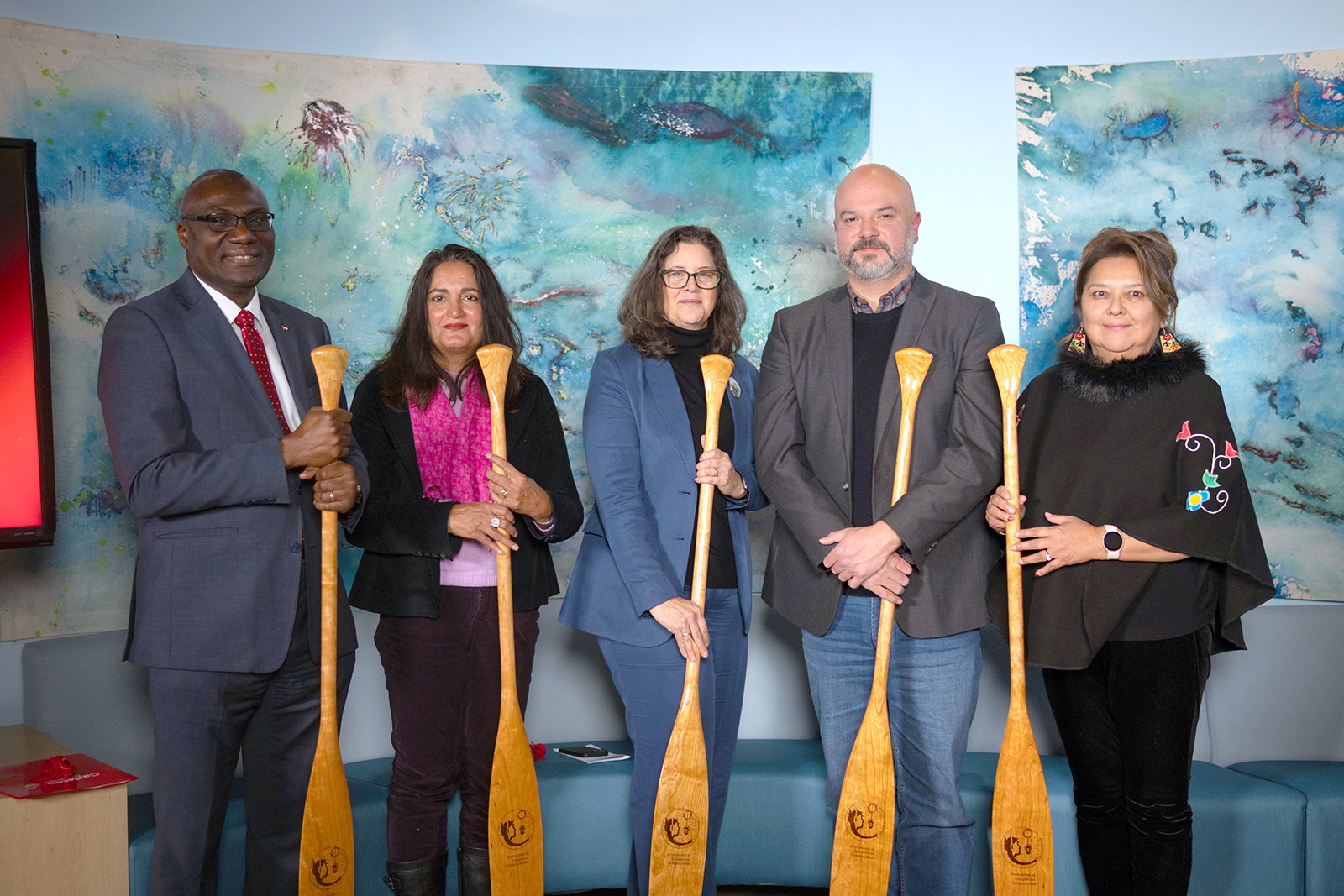
Carleton staff and partners gathered at Ojikwanong Indigenous Student Centre to celebrate the launch of CJIIC on Jan. 29, 2025. From left to right: Carleton president Wisdom Tettey; Sadia Zaman, Inspirit Foundation’s CEO; Jennifer Brennan, senior director of Canada programs at Mastercard Foundation; Adam Hopkins, academic vice-president of First Nations Technical Institute; and Kenjgewin Teg’s president Beverly Roy (Credit: Leo Solano Mendez)
Our Financial Partners
Our program would not be possible without generous support. We gratefully acknowledge our financial partners who make the program possible.
We are pleased to have entered a three-year partnership with the Mastercard Foundation EleV program (pronounced “ell-a-vee”) to operate the CJIIC. EleV’s goal is to transform education systems in a way that is led by Indigenous youth and communities.
A seed grant from the Inspirit Foundation was instrumental in helping start our program. Inspirit actively funds journalism, with the goal of advancing greater narrative power for communities that Canadian media have historically underrepresented or misrepresented.
